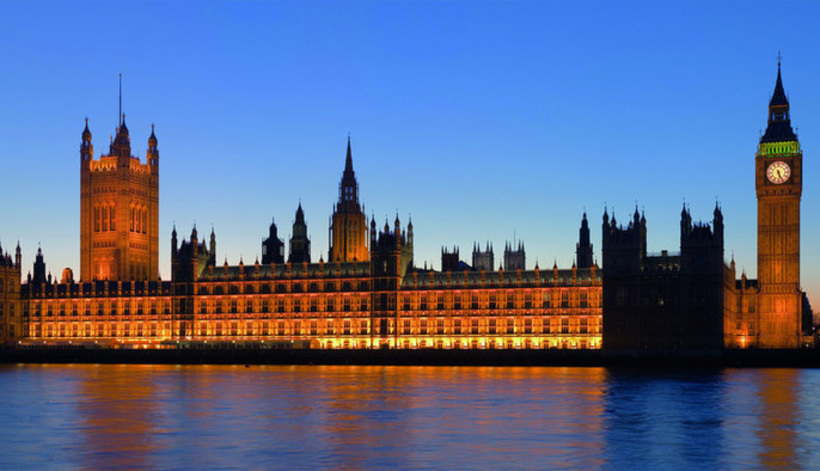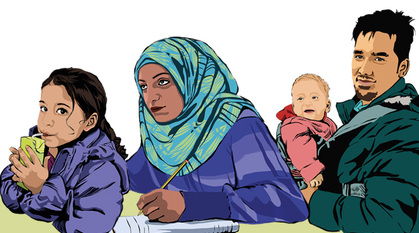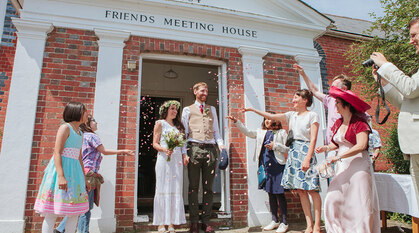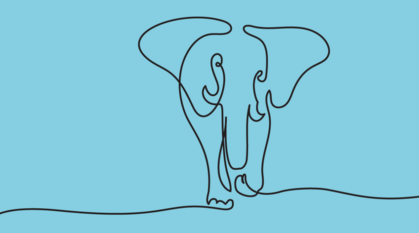Why I'm tired of just talking about Brexit
Paul Parker on talking about, not talking about, and just talking about Brexit – and what Quakers can offer in this turbulent time.

I am tired of talking about Brexit. I am tired of telling people what I think; explaining what options I think our government should be pursuing. I am tired of finding there's no common ground; of steeling myself for the inevitable debate. I am tired of talking to people I agree with, and finding they experience the same sense of powerlessness that I experience. I am tired of finding that even mentioning it polarises things. Maybe I need to stop talking about Brexit.
I am also tired of not talking about Brexit. I'm tired of the truncated conversations. I'm tired of the damaged relationships with family members, friends and Friends. I'm tired of not mentioning it at Quaker meeting because we don't all agree. I'm tired of feeling that it's not safe to mention it. I'm tired of not talking about it online because of the trolls.
So maybe I need to stop not talking about Brexit too.
Where does that leave us?
Maybe I need to challenge myself to start listening. Listening to those whose voices aren't being heard. Listening to those whose lives are changing – or may already have irreversibly changed – because of all this and what it is doing to our society.
Listening to people who are fearful about change; listening to people who are frightened that things may never change. Listening to each other deeply, not just waiting for each other to stop talking so we can have our say. Maybe we need to be curious about why people think what they think. Ask, not tell. Dig deep, not just scrape the surface.
Maybe we need to consider we may be mistaken. To be prepared to stop speaking when I find my words come from a position of ignorance, or when I realise I am blinkered by my own privilege and can't see out of my bubble.
There is so much that is bigger than Brexit. Hope. Peace. Inequality and privilege. Forced migration and xenophobia. Climate breakdown, where the clock is ticking loudly too. These things we can agree on, we do unite behind, and we already act on. So why does Brexit make me feel as though I am not doing anything, that I need to do something more?
What can Quakers offer?
In 1660, Margaret Fell, one of the first Quakers, told the new King, Charles II: “We are a people that follow after those things that make for peace, love and unity; it is our desire that others' feet may walk in the same, and do deny and bear our testimony against all strife, and wars, and contentions that come from the lusts that war in the members, that war in the soul, which we wait for, and watch for in all people, and love and desire the good of all… Treason, treachery, and false dealing we do utterly deny; false dealing, surmising, or plotting against any creature upon the face of the earth, and speak the truth in plainness, and singleness of heart."
In 2016, just after the EU referendum, Quakers in Britain said: “There is now a great need for bridge-building, for reaching out to one another in love, trusting that below the political differences lie a shared humanity and a wish for flourishing communities... We will look for creative ways to find common cause, to listen, to influence and to persuade. As the status quo is shaken we and our neighbours must look to one another for support, wisdom and above all ways of healing divisions."
Are we doing enough to live up to these commitments, past and present?
Five things we could do
1. We could look to our own dividedness, finding ways to hear one another, clear the air, find common cause and begin work. We could learn to disagree well, to listen and to learn from one another. We could look at what we ourselves have done to foster this situation and its challenges. We could support each other at a time of turbulence, uncertainty and even fear. We could look after each other and ourselves, keep hoping, worshipping and praying together. We could look to our guide and heed the promptings of love and truth in our hearts.
2. We could use our own well-tested processes to work on this and reach clearness. We have Quaker structures and processes which could support us, by helping us to test our concerns more widely. We could send minutes to our area meetings and to Meeting for Sufferings, and pass things to our committees for them to bring their Quaker discernment to bear. We could recognise that we, ourselves, will not have all the answers.
3. We could look to our wider communities, using our processes and our experience in responding to conflict to help unite, be allies to those whose voices are not part of the debate, reach beyond our own comfort zone. We could recognise that even when things go in directions we didn't want them to we have a role to play in creating what comes next. We are experienced in bringing people together; we have places and spaces we can invite people in to; at our best, we know how to be inclusive and to create communities where all are valued for the insights we bring; we have creative facilitators, experienced mediators and wise counsellors. Are we using these skills, places, and people?
4. We could look to our witness and work. We already work on peace, seeking to find ways to bring people together in non-violent ways. We know how to build a movement for change. We work on economic justice and equality, seeking to address the root causes of the dissatisfaction many in our society experience. We work on sustainability, advocating for policy and behavioural changes and supporting living in such a way that one day soon we may live within the resources of our planet.
5. We could look to our institutions. We have a voice which can be heard by government, by the international institutions in Brussels and at the UN, and in the public square. When we have something clear to say, we know how to say it well. With other churches, faith groups and civil society organisations we can prepare for the debate which is going to come; this is not going to end on 29 March. We can help to hold decision-makers accountable, and to uphold them in their work. They may not be as free or as confident as they appear.
Whatever happens in the coming months we have to live in the future which follows. As people of faith, we can set out our vision of a loving, just, peaceful and sustainable world, perhaps the closest we can expect to get to the Kingdom of Heaven.
We could stop just talking about Brexit.


